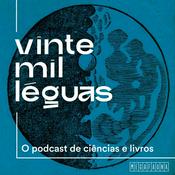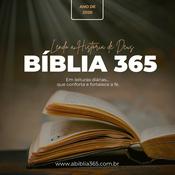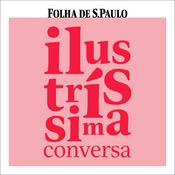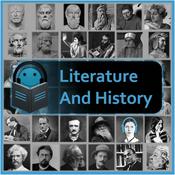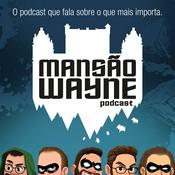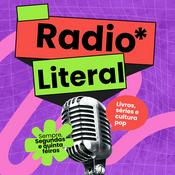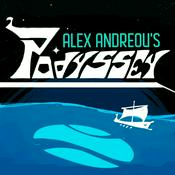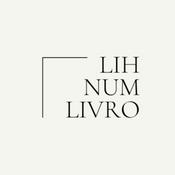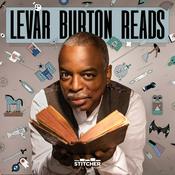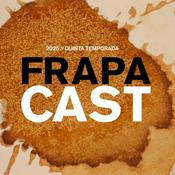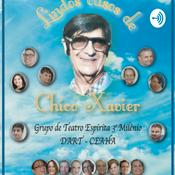120 episódios
- Today on Ascend: The Great Books Podcast, Dcn. Harrison Garlick and Dr. Donald Prudlo, the Warren Chair of Catholic Studies at the University of Tulsa, discuss the Ante-Purgatory, the foot of Mount Purgatory (Cantos 1-5).
Check out our guide on Dante's Purgatorio (out soon!)
Visit Dr. Jason Baxter's website and use "Ascend" in the promo code for 20% off his Purgatorio audiobook.
Thanks for the Center for Beauty and Culture at Benedictine College for their support!
The conversation with Dr. Prudlo and Deacon Garlick on Cantos 1–5 of Purgatorio opens with the dramatic shift from the despair of Inferno to the hope and refreshment of Purgatory.
In Canto 1, Dante and Virgil emerge from Hell onto the shores of Mount Purgatory at Easter dawn, where Dante humbly invokes Calliope, the Muse of epic poetry, signaling his project as “the Christian epic” (Dr. Donald Prudlo). They meet Cato the Younger, a pagan suicide saved by special grace, who embodies the four cardinal virtues and serves as Purgatory’s guardian. Prudlo emphasizes the shock: “Cato the pagan, the suicide is going to heaven. And we have got to confront that or we're going to miss so much of what Dante has to tell us here” (Dr. Donald Prudlo). The ritual of washing with dew and girding with the humble reed contrasts the broken plants of the suicides in Hell and symbolizes the beginning of true humility and ascent.
Cantos 2–5 introduce the late-repentant souls and the mountain’s structure. In Canto 2, an angelic boat ferries souls singing “In exitu Israel de Aegypto,” a psalm of liberation that Prudlo calls “a multifaceted song” evoking Exodus, baptism, and community (Dr. Donald Prudlo). Casella’s song of Dante’s own poetry enchants the group until Cato rebukes their idleness.
Cantos 3–5 explore excommunicated sinners like Manfred (“even under a curse like mine, no one's ever so lost that eternal love cannot come back, as long as hope has any sprouts of green” – Manfred via transcript) and the slothful Belacqua, who banters with Dante like old friends. Prudlo highlights the power of last-minute mercy and intercession: “Mary is the last refuge of sinners” (Dr. Donald Prudlo). The cantos teach that Purgatory is a place of communal hope, where grace reaches even the unlikely, and purification begins with humility, prayer, and rightly ordered love—setting the stage for the active ascent through the terraces.
Chapters
00:00 Introduction to Dante's Purgatorio
04:42 The Importance of Reading Purgatorio
08:02 Themes of Emancipation and Freedom
10:57 The Role of Cato in Purgatorio
13:49 Cato's Significance and Political Implications
17:00 Cato as a Precursor to Christ
19:51 Dante's Literary Techniques and Inspirations
22:56 Contrasting Ulysses and Dante
25:36 Cato's Death and Its Symbolism
28:52 The Nature of Purgatory and Salvation
31:51 Cato's Virtues and Their Relevance
34:49 The Relationship Between Cato and Christ
37:48 Conclusion and Reflections on Purgatorio
50:03 Understanding Cato's Role in Purgatorio
52:43 The Heartbreaking Choice of Cato
54:39 Rituals and Purification in Purgatory
01:00:18 The Arrival at Purgatory
01:06:34 The Significance of Water in Salvation
01:12:09 Virgil's Role and the Nature of Guidance
01:24:57 Manfred: A Case of Late Repentance
01:29:38 The Role of Intercessory Prayer in Purgatory
01:34:00 Understanding Mount Purgatory and Its Significance
01:40:15 The Character of Belacqua and Themes... - Today on Ascend: The Great Books Podcast, Dr. Jason Baxter and Dcn. Harrison Garlick come together to introduce Dante's Purgatorio and Dr. Baxter's new translation!
We are reading Dante's Purgatorio for Lent. Join us!
Visit thegreatbookspodcast.com for our reading schedule!
Check out our LIBRARY of written guides to the great books!
DISCOUNT: Check out Dr. Jason Baxter's website and enter "Ascend" to receive **20%** off the Purgatorio audiobook read by Dr. Baxter!
Check out Dr. Baxter's Substack article on his new translation.
And thank you to the Center of Beauty and Culture at Benedictine College for promoting this reading of the Purgatorio!
Dr. Baxter first describes the Center for Beauty and Culture at Benedictine College as a fellowship program (Angelico Fellows) that immerses students in beauty across the arts, music, literature, and theology—through concerts, museums, and pilgrimages—to foster interiority and the conviction that “beauty can save the world.”
The conversation then contrasts Purgatorio with the Inferno: while the latter is dark, lurid, and focused on judgment, Purgatorio is a place of hope, mercy, transformation, and “eternal New Year’s resolutions,” where repentant souls engage in spiritual exercises to purify their tarnished mirrors, learn authentic love and prayer, and prepare for Paradise. Baxter likens the shift to moving from heavy metal to Schubert, emphasizing greenness, brightness, and unexpected mercy.
Baxter explains that his translation began as a personal quest for mastery—going word-by-word to internalize Dante like memorizing a piano piece—but evolved into a philosophy capturing Dante’s “fugue” of style: ascending, prolix syntax with lofty classical allusions layered over humble, earthy words that reflect Franciscan humility and incarnational Christian poetics. Examples include goats ruminating on the “foco d’amore” (fire of love) amid elevated star imagery, or Statius calling Virgil’s Aeneid “una mamma” (translated “mommy”).
He describes Purgatorio as spiritual surgery—painfully removing the soul’s “carcinogenic” elements through grace-filled cooperation—and a map for configuring to Christ beyond mere sin avoidance. Baxter advises first-time readers to pause at puzzling images or word choices, ask “why would Dante do that here?,” trust their instincts, and consider his audiobook for the text’s soundscape, while Deacon Garlick stresses the canticle’s role as a spiritual guide that mirrors one’s own maturation toward God.
Chapters
00:00 Introduction to Ascend and Dante's Purgatorio
03:43 The Center for Beauty and Culture
05:40 Understanding Dante's Purgatorio
07:54 The Nature of Purgatorio
14:54 Dante the Pilgrim vs. Dante the Poet
19:32 The Spirituality of Translation
20:14 The Philosophy of Translation
30:02 Dante's Christian Poetics
34:22 Exploring Dante's Poetic Style
36:51 Juxtaposition in Dante's Imagery
41:42 The Concept of Spiritual Surgery
44:49 The Journey of Holiness
48:13 The Role of... - Today on Ascend: The Great Books Podcast, Deacon Harrison Garlick and Dr. Justin Jackson host a Q&A on Sir Gawain and the Green Knight. They explore major themes such as the role of femininity, the moral dilemmas faced by Gawain, and the significance of the girdle.
Visit thegreatbookspodcast.com for our reading schedule!
Check out our episodes on Sir Gawain and the Green Knight and our study guide!
Visit Professor Jackson's awesome SUBSTACK.
The conversation highlights Gawain's character development, the tension between chivalric ideals and Christian morality, and the Green Knight's role as a tempter. Through a detailed analysis, they uncover the layers of meaning within the poem, emphasizing the intentional tension crafted by the poet.
Join our Patreon page to be able to submit questions in the future!
Chapters
00:00 Introduction to the Podcast and Guests
03:13 Teaching 'Sir Gawain and the Green Knight'
06:34 The Role of Women in the Poem
12:27 The Tension Between Pagan and Christian Elements
21:57 Gawain's Moral Dilemmas and Compartmentalization
28:05 The Confession Scene and Its Implications
37:02 Confession and Contrition
40:56 The Green Knight's Dual Role
51:58 Chivalry, Cowardice, and the Girdle
01:02:50 Symbolism of Colors in Gawain
01:07:31 The Intensity of the Green Knight
01:08:36 Gawain's Confrontation and Internal Conflict
01:11:29 The Symbolism of the Green Girdle
01:17:24 The Ending: Bliss and Blunder
01:26:19 Final Thoughts on Gawain's Journey
Keywords
Sir Gawain, Green Knight, themes, femininity, chivalry, morality, confession, literature, medieval, analysis, Sir Gawain, Green Knight, chivalry, medieval literature, symbolism, courtly love, Morgan Le Fay, color symbolism, moral lessons, literary analysis, great books, philosophy, Catholic, Catholicism
Takeaways
The tension in the poem is intentional and significant.
Gawain's character is complex, showcasing both strengths and weaknesses.
The role of femininity is prominent and influential in the narrative.
The girdle symbolizes Gawain's internal conflict and moral struggles.
Gawain's confession scene raises important questions about sincerity and contrition.
The Green Knight serves as a tempter, challenging Gawain's virtues.
The poem explores the interplay between pagan and Christian ideals.
Gawain's journey reflects a maturation of character and understanding.
The hunting scenes parallel Gawain's temptations and moral choices.
The... - Today on Ascend: The Great Books Podcast, Deacon Harrison Garlick and Dr. Donald Prudlo explore the intricate relationship between Plato and St. Thomas Aquinas, examining how Aquinas's thought is influenced by Platonic philosophy while also being rooted in Aristotle.
We are reading the PURGATORIO for Lent!
Check out our LIBRARY OF GUIDES TO THE GREAT BOOKS.
See Dr. Prudlo's books on St. Thomas, administration, and more!
They discuss the nuances of Aquinas' understanding of universals, the nature of evil, and the significance of the body in Christian anthropology, highlighting the complexities of Aquinas's intellectual context and the historical development of these philosophical ideas.
They discuss how Aquinas synthesized various philosophical traditions, particularly in his understanding of existence and essence, the role of beauty, and the moral implications of his metaphysics. The dialogue also touches on the early church's reception (or rejection) of Aristotle, the influence of Islamic philosophy, and the evolution of Aquinas' thought throughout his life.
Ultimately, the conversation highlights the richness of Aquinas' philosophy and its relevance to contemporary discussions on faith and reason.
Chapters
00:00 Introduction to the Great Books Podcast
03:11 Experiencing the Papal Conclave
06:34 Plato and Aquinas: A Complex Relationship
12:43 Aquinas' Intellectual Evolution
17:02 The Importance of Reading the Great Books
24:25 Platonic Thought in Aquinas' Philosophy
34:48 The Quest for Certitude in Philosophy
37:20 Realism and the Nature of Universals
40:56 Mind-Body Dualism and the Significance of the Body
47:36 The Reception of Aristotle in Early Christianity
54:09 The Distinction Between Essence and Existence
01:04:53 The Role of Beauty in Aquinas' Philosophy
01:06:38 Exploring Beauty in Philosophy
01:11:23 The Role of Beauty in St. Thomas Aquinas
01:13:44 The Ladder of Love and Its Implications
01:19:18 Essence and Existence in Thomistic Thought
01:21:41 The Hierarchy of Being and Divine Wisdom
01:25:22 The Evolution of Aquinas' Thought
01:27:35 Understanding Aquinas Through His Influences
01:30:17 Final Thoughts on Faith and Reason
Takeaways
Aquinas is often mischaracterized as purely Aristotelian.
The relationship between Plato and Aristotle is more complex (and harmonious) than often portrayed.
Aquinas' thought is enriched by both Platonic and Aristotelian influences.
Evil is understood as a privation of the good in Aquinas's philosophy.
Aquinas' understanding of universals differs from both Plato and Aristotle.
The concept of exitus and reditus is a key Neoplatonic idea in Aquinas.
The mind-body dualism presents challenges for Christian thought.
Aquinas retained Platonic emphasis on the... - In this episode of the Ascend: The Great Books Podcast, Deacon Harrison Garlick engages in a profound discussion with Dr. Thomas Ward from Baylor University about Plato's influence on St. Boethius.
The conversation begins with an exploration of Boethius's life, particularly his role as a Roman statesman and philosopher during a tumultuous time in history. Dr. Ward highlights St. Boethius's seminal work, "The Consolation of Philosophy," written while he awaited execution, and discusses its impact on medieval thought and the liberal arts tradition. The dialogue emphasizes St. Boethius's unique position as a bridge between Roman and medieval philosophy, often referred to as the last of the Romans and the first of the medievals.
Visit thegreatbookspodcast.com for our reading schedule.
Want to know more about Plato? Start here with our Plato playlist.
And check out Dr. Thomas Ward's website!
As the conversation unfolds, the discussion shifts to the Platonic influences on St. Boethius's writings. Dr. Ward explains how Boethius synthesized Platonic and Aristotelian thought, particularly in his understanding of the good and the nature of happiness. The episode delves into the themes of evil as privation, the nature of true happiness, and the philosophical journey from despair to enlightenment that St. Boethius undergoes in his work.
The dialogue is rich with references to other philosophical texts, including the works of Plato, and draws parallels between Boethius's ideas and those found in the writings of later thinkers like Dante and Aquinas. Overall, the episode serves as a compelling introduction to Boethius's thought and its enduring relevance in the study of philosophy.
Chapters
00:00 Introduction to the Great Books Podcast
02:24 Exploring Boethius and His Influence
04:16 Who Was Boethius?
07:49 Boethius: The Last Roman and First Scholastic
10:18 The Liberal Arts and Boethius' Legacy
11:36 Teaching Boethius: A Personal Journey
14:07 Plato's Influence on Boethius
18:50 The Consolation of Philosophy: Setting the Stage
24:31 Lady Philosophy: Deconstruction and Reconstruction
29:58 The Quest for Self-Knowledge
30:51 Fortune and Its Dual Nature
31:53 The Good: Bridging Plato and Christianity
36:19 Happiness and the Divine Connection
40:00 The Paradox of Good and Evil
45:11 The Poetic and Philosophical Fusion
48:44 Evil as Privation: A Platonic Insight
52:08 Boethius: A Synthesis of Philosophical Traditions
Takeaways
Boethius is often called the last of the Romans and the first of the Medievals.
His work, "The Consolation of Philosophy," was written while he awaited execution.
Boethius synthesized Platonic and Aristotelian thought in his writings.
Evil is understood as a privation of good, not a substance in itself.
The journey from despair to enlightenment is central to Boethius's philosophy.
Keywords
Boethius, Plato, Consolation of Philosophy, medieval philosophy, Ascend: The Great Books Podcast, Thomas Ward, liberal arts, happiness, evil as privation, philosophy, Deacon Harrison Garlick, great...
Mais podcasts de Arte
Podcasts em tendência em Arte
Sobre Ascend - The Great Books Podcast
Welcome to Ascend!
We are a weekly Great Books podcast hosted by Deacon Harrison Garlick and Adam Minihan.
What are the Great Books?
The Great Books are the most impactful texts that have shaped Western civilization. They include ancients like Homer, Plato, St. Augustine, Dante, and St. Thomas Aquinas, and also moderns like Machiavelli, Locke, and Nietzsche. We will explore the Great Books with the light of the Catholic intellectual tradition.
Why should we read the Great Books?
Everyone is a disciple of someone. A person may have never read Locke or Nietzsche, but he or she thinks like them. Reading the Great Books allows us to reclaim our intellect and understand the origin of the ideas that shape our world. We enter a "great conversation" amongst the most learned, intelligent humans in history and benefit from their insights.
Is this for first-time readers?
YES. Our goal is to host meaningful conversations on the Great Books by working through the texts in chronological order in a slow, attentive manner. Our host Adam Minihan is a first-time reader of Homer. We will start shallow and go deep. All are invited to join.
Will any resources be available?
YES. We are providing a free 115 Question & Answer Guide to the Iliad written by Deacon Harrison Garlick in addition to our weekly conversations. It will be available on the website (launching next week).
Go pick up a copy of the Iliad!
We look forward to reading Homer with you in 2024.
Site de podcastOuça Ascend - The Great Books Podcast, para todas as pessoas intensas. e muitos outros podcasts de todo o mundo com o aplicativo o radio.net

Obtenha o aplicativo gratuito radio.net
- Guardar rádios e podcasts favoritos
- Transmissão via Wi-Fi ou Bluetooth
- Carplay & Android Audo compatìvel
- E ainda mais funções
Obtenha o aplicativo gratuito radio.net
- Guardar rádios e podcasts favoritos
- Transmissão via Wi-Fi ou Bluetooth
- Carplay & Android Audo compatìvel
- E ainda mais funções


Ascend - The Great Books Podcast
Leia o código,
baixe o aplicativo,
ouça.
baixe o aplicativo,
ouça.




